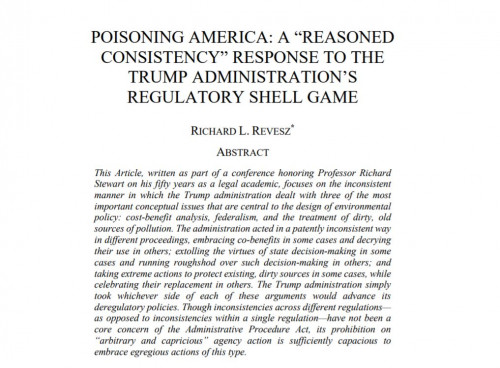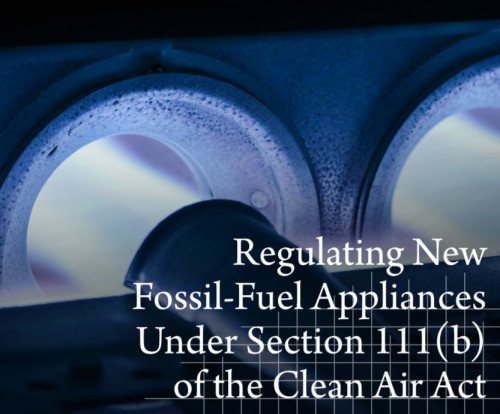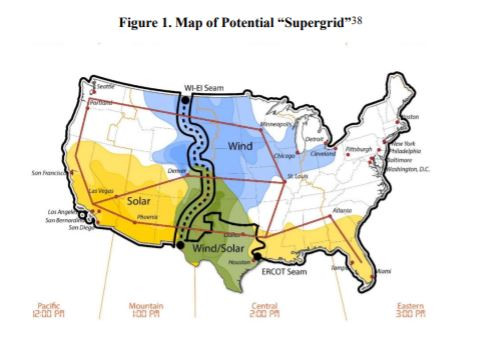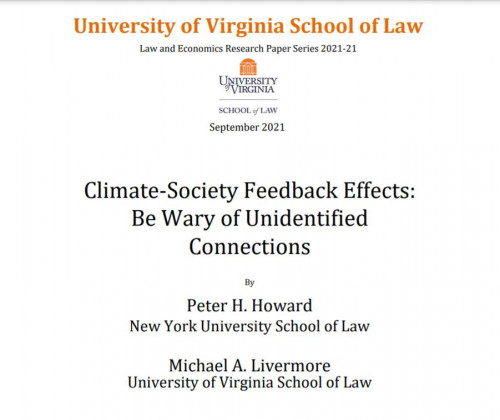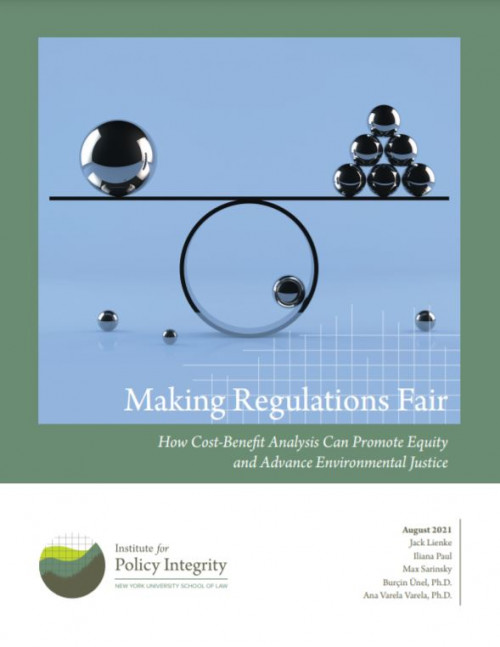The Institute for Policy Integrity produces a variety of publications. Our research reports develop in-depth research on our core issues, while our policy briefs and issue briefs provide focused analysis on more timely or particular topics. Our academic articles and working papers offer original scholarly research and analysis from established experts as well as fresh new voices.
Latest Publications
-
Poisoning America
A “Reasoned Consistency” Response to the Trump Administration’s Regulatory Shell Game
Published in the NYU Environmental Law Journal, the article analyzes the inconsistent manner in which the Trump administration dealt with cost-benefit analysis, federalism, and the treatment of dirty, old sources of pollution in the design of environmental policy. The article finds that though inconsistencies across different regulations— as opposed to inconsistencies within a single regulation—have not been a core concern of the Administrative Procedure Act, its prohibition on “arbitrary and capricious” agency action is sufficiently capacious to embrace egregious inconsistencies.
-
Regulating New Fossil-Fuel Appliances Under Section 111(b) of the Clean Air Act
This report finds that EPA has authority under Section 111(b) of the Clean Air Act to set nationwide performance standards for new residential and commercial fossil-fuel appliances and that multiple means of reducing emissions from such appliances are adequately demonstrated, including the use of electric-heat-pump technology.
-
Building a New Grid without New Legislation: A Path to Revitalizing Federal Transmission Authorities
Published Ecology Law Quarterly
In the absence of legislation, critical long-distance transmission can be developed by applying existing federal legal authorities. A number of important regulatory and commercial measures have been proposed, including streamlining transmission planning, upgrading existing transmission system components, putting transmission lines underground, and using existing rights-of-way from highways and railroads. Even if these solutions are adopted, however, state siting requirements may prove an important obstacle to developing an efficient, national transmission grid. So, this paper examines legal authorities already available to the Department of Energy and the Federal Energy Regulatory Commission to develop the interstate transmission capacity crucial to the energy transition.
-
Climate-Society Feedback Effects
Be Wary of Unidentified Connections
To ensure policies are based on accurate predictions of climate impacts, it is critical to understand social-ecological system (SES) feedbacks, including how humans change the climate by reacting to a changing climate. Building on recent scholarly work on the topic, this article describes SES interactions and how they can be incorporated into climate policy tools such as the social cost of carbon. The article then proposes a research agenda for the identification, quantification, and integration of climate-society feedbacks into social-cost integrated assessment models (SC-IAMs).
-
Making Regulations Fair
How Cost-Benefit Analysis Can Promote Equity and Advance Environmental Justice
To achieve the Biden administration’s ambitious commitments to equity and environmental justice, agencies will need guidance on how to assess and weigh the distributional effects of policy options. This report recommends steps that the Office of Management and Budget (OMB) can take to mainstream equity into agencies’ decisionmaking.

